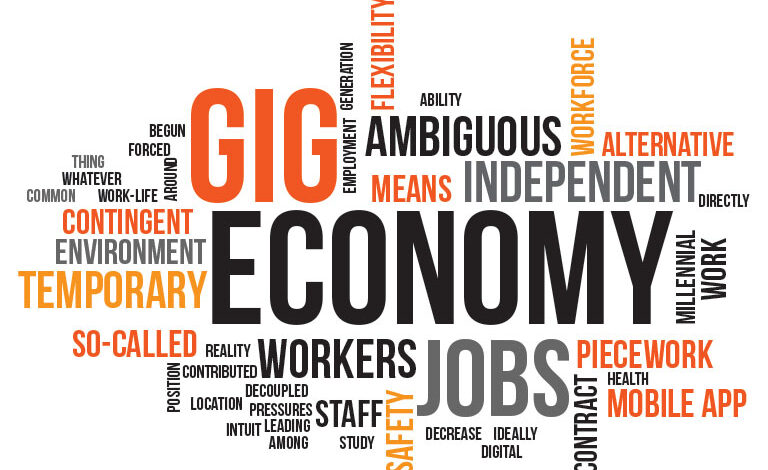The gig economy: the rise of freelancing and its impact on traditional employment

The gig economy refers to a labor market characterized by the prevalence of short-term contracts or freelance work as opposed to permanent jobs. With the advent of technology, the gig economy has grown significantly over the past decade, creating new opportunities for individuals to work as freelancers, contractors, or part-time workers.
One of the key advantages of the gig economy is that it offers individuals the flexibility to work on their own terms. Freelancers can choose their own hours, select the projects they want to work on, and have the freedom to work from anywhere in the world. This level of autonomy has proven to be particularly appealing to younger workers who prioritize work-life balance and value their independence.
However, the rise of the gig economy has also raised concerns about the impact on traditional employment. As more individuals move away from traditional 9-to-5 jobs, there is a growing sense that stable, long-term employment opportunities are becoming scarcer. Moreover, gig workers often do not receive the same level of benefits and protections as traditional employees, such as health insurance, retirement plans, or workers’ compensation.
The gig economy has also created new challenges for employers. Companies that rely on gig workers must navigate a complex legal landscape that is often unclear about the employment status of these workers. In some cases, gig workers have been classified as independent contractors, which exempts them from certain employment protections. However, this classification has also been challenged in court, with some arguing that gig workers should be classified as employees.
Overall, the gig economy has brought both opportunities and challenges to the labor market. While it has provided individuals with new avenues for work and increased flexibility, it has also raised concerns about the erosion of traditional employment and the need for stronger protections for gig workers.
Additionally, the gig economy has also had a significant impact on the economy as a whole. With more individuals working as freelancers and contractors, there has been a shift away from traditional employer-employee relationships. This shift has resulted in a more fluid and dynamic labor market, with workers moving between jobs more frequently.
However, this increased flexibility has also led to greater uncertainty for workers, who may struggle to find steady work or face a lack of job security. Moreover, gig workers often earn less than their traditional counterparts and may struggle to make ends meet if they experience a dip in their income.
The gig economy has also created new challenges for policymakers, who must balance the need to protect workers with the desire to foster innovation and entrepreneurship. Some policymakers have advocated for new regulations that would provide greater protections for gig workers, while others have argued that too much regulation could stifle innovation and limit economic growth.
Despite these challenges, the gig economy shows no signs of slowing down. As technology continues to advance, it is likely that more individuals will seek out opportunities to work as freelancers and contractors. As such, it is essential that policymakers and employers work together to ensure that the benefits of the gig economy are shared by all workers, and that the economy remains fair, dynamic, and sustainable for years to come.


